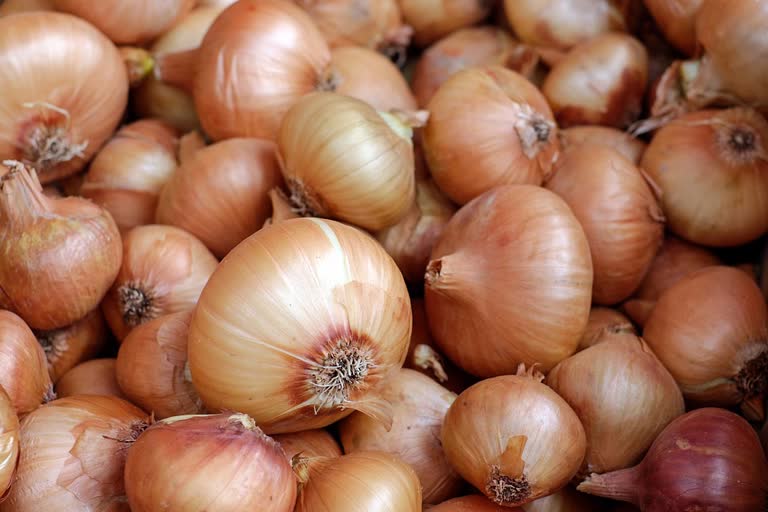New Delhi: With predictions of a "below average" monsoon this year, which means a lower crop output, the Central government has asked procurement agencies to store at least 50,000 tonnes of onions to ensure that market prices remain under control in case of shortage.
Acting on the directions issued by the Union Food Ministry, the National Agricultural Cooperative Marketing Federation of India (NAFED) has started procuring onions in Maharashtra and Gujarat.
"We have asked them to procure as much quantity as they can. It should be over 50,000 tonnes," Consumer Affairs Secretary A.K. Srivastava told IANS.
The buffer stock would be used to control prices in case there is a shortage of onions in the market.
In 2017, the government was struggling to keep prices of the essential vegetable affordable as retail prices had crossed Rs 60 per kg in Delhi.
Then Union Food Minister Ram Vilas Paswan had expressed his helplessness in controlling onion prices and blamed reduction in the area of cultivation and hoarding by traders for the shortage.
The government was forced to take measures such as procuring onions from local markets and discouraging exports to bring the prices down.
In order to keep a watch on the hoarders, this time the government has roped in the Intelligence Bureau (IB). "The IB and police have been tasked with checking hoarding activities," Srivastava said.
Also read: Decline in export credit a concern: Piyush Goyal
According to the latest estimates of the Agriculture Ministry, the area on which onions are cultivated has reduced to 12.67 lakh hectares this year from 12.85 lakh hectares a year ago.
This year, acreage and output are expected to go down further in the backdrop of the sharp drop in the returns farmers got last year.
In Asia's largest wholesale market for onions, the prices had fallen to Rs 100-Rs 300 per quintal in December 2018.
Reacting to the reports of an increase in the prices of Arhar (pigeon pea), the Food Ministry ruled out any possibility of the prices spiralling out of control.
Paswan, who retained the Food and Consumer Affairs portfolio in the new government, told reporters that the Ministry had 14 lakh tonnes of Arhar in its buffer stocks while NAFED had 20 lakh tonnes.



